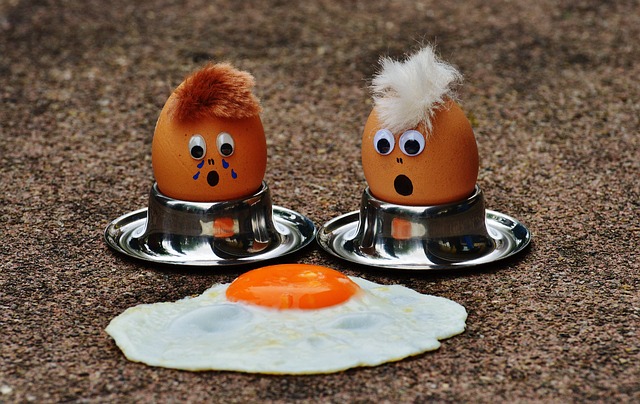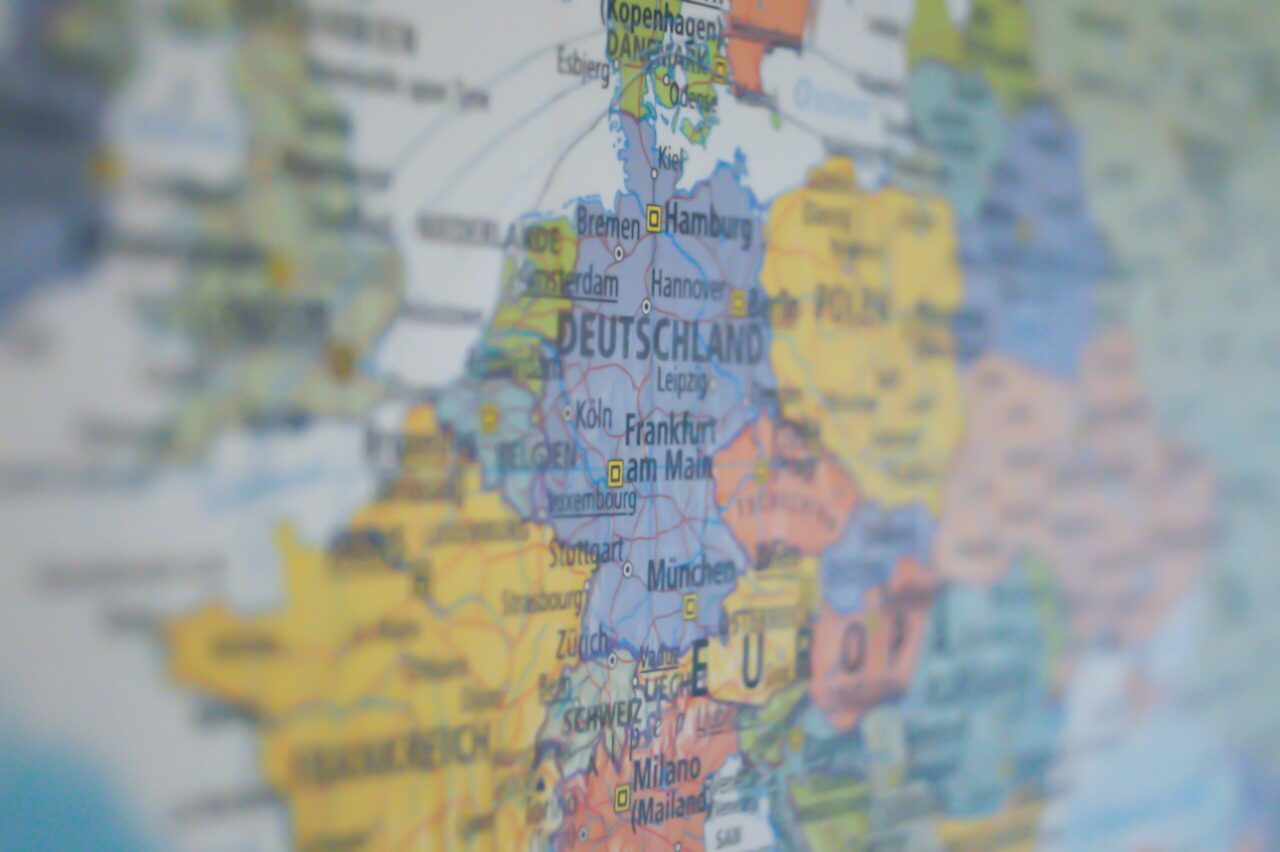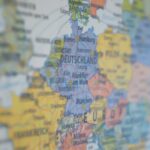Learning German can be challenging, but it can be also rewarding. This article will give you some interesting aspects of German that you should know. This information will not only help you learn the language but will help you understand German culture as well.

How To Know If A Foreign Word In German Uses ‘das’ Or Not
Learning a new language that has multiple words for ‘the’ (called articles) can be tough to get your head around. This is an aspect of language that is totally new for English speakers. You may find yourself in the middle of a conversation and unsure which one to use, is it der, die, das, or possibly den, des, or dem?
German contains some generalized rules to help you have an educated guess at what the article will probably be, but this is not always correct. Things get even more tricky for words that aren’t even German! Words such as team, hobby, baby, and training are just some of the common words that you may hear from a German speaker that comes from the English language but the article to use for these words may not be what you think.
You may be tempted to think that all loanwords would just use das, however unfortunately that is not the case. It is a good rule of thumb that if you are unsure which article to use for a loanword, das is probably your best bet. Unfortunately, this will be the case for all words.
If the word is a completely new word taken from another language, it is likely that the ending will be das. However, if that word is the German equivalent or similar to other words, the article may become the same article as the word it is replacing or is closely related to.
Loaning words across languages has been around for longer than you may think, done in English as well. Have you ever thought that the word kindergarten was an odd word? It’s actually a loanword from German!
Loaning of words has become more frequent, as language evolves and technology enables more crossing of wires across languages to transfer new words. This means that words such as Facebook, Computer, Apple (the company), and iPhone would be recognized across practically the entire world no matter which language you are speaking.

How Are Articles For German Words Decided?
If there is no hard and fast rule for loanword articles, who gets to decide which article to use for German words? There is no real answer to this beyond saying that when a new word is created agenda will be given to it by whoever uses the word and over time the article to use will become solidified.
This is similar to the way that spelling becomes standardized in a new language. You may have seen in old English the same word spelled multiple different ways until over time a single spelling of a particular way it was accepted.
Language is a living construct at the end of the day it does not really matter if the dictionary says that the correct article is der, if German speakers are all using das. This means that the article used for different words may actually differ across the country. This is not so common that you need to worry when learning German, but one example of this is the word butter (der/die Butter). In northern Germany, the article to use is die, while in southern Germany the article to use is der.

Will I Still Be Understood If I Use the Wrong German Article?
Using the wrong German article isn’t going to make your sentence impossible to understand.
There is really no equivalent for how this would sound in English, but to give you an idea, it could be something like saying “This is Mark, she is really into running.” Calling Mark she instead of he doesn’t stop anybody from understanding and there will probably be times when you use the wrong article, but don’t worry this is what language learning is all about.

How Do You Say Mr/Mrs In German
Knowing how to correctly address somebody is a great way to start off on the right foot even if you have only just met them. In English, this is traditionally achieved by saying sir and ma’am, and things can get slightly more complex in German.
To say Mr or Mrs in German, Herr and Frau, plus the surname, in the same way, that in English we would say Mr or Mrs and the surname. Remember that German has two sets of pronouns for ‘you’, a more formal set and an informal set. Make sure you use the correct set from the below table when addressing other people.
| Informal | Formal | English | |
| Nominative | du | Sie | You (singular) |
| ihr | Sie | You (plural) | |
| Accusative | dich | Sie | You (singular) |
| euch | Sie | You (plural) | |
| Dative | dir | Ihnen | to you (singular) |
| euch | Ihnen | to you (plural) | |
| Genitive | deiner | Ihrer | Your |
| euer | Ihrer | Your (plural) |
A great rule of thumb is to use the formal version of ‘you’ when interacting with people while they are working, such as shop assistants, administration staff, police officers, etc. If you are meeting somebody for the first time it may be easier to use the more formal version at the start. It is common in these instances for the other person to give you permission to address them using the informal pronoun, but wait for this invitation before switching.
The casual social circumstances, it’s probably a safe bet to use informal pronouns. For example, if you’re at a party and you’re meeting one of your friends’ friends, it would be fine to use the informal pronoun.

Why Is Fräulein An Offensive Term In German?
You may have heard the term Fräulein thrown around in movies, as well as the word Frau. The added ending of -lein onto the word is called a diminutive, which is used when you want to describe the scaled-down version of that noun. The connotation here though by calling somebody Fräulein is that they are not a full woman because they’re not married.
Using this word in public with somebody that you do not know can therefore be quite offensive and it is best to steer clear of using this word as much as possible.

What Is The Difference Between Dutch And Deutsch?
The key difference between Dutch and Deutsch is that they are words to describe people from two entirely different countries. Deutsch is the German word for German, well Dutch is the English word for Dutch people (who live in the Netherlands). Is a common mistake as the words are quite similar. To make things even more confusing, the Netherlands is actually right next to Germany, however as Dutch is an English word and Deutsch is a German word, it’s unlikely that you will see these words together all that often.
Another similar mistake that is also common is using the words Swedish and Swiss interchangeably. The same as Germany and the Netherlands, Switzerland and Sweden, are two entirely different countries. Although both countries are part of Europe, they are thankfully not neighbours which helps to make things a little easier to sort out.

What Is The Difference Between High And Low German?
You may have heard that there are different types of German being spoken. The most common words for this are High German (Hochdeutsch) and Low German (Neiderdeutsch/Plattdeutsch). Low German and High German are geographically split across Germany and are essentially two separate dialects. Low German is spoken more in the northern part of Germany in the lower regions, while High German is spoken in the southern part of Germany which is typically higher.
There are comparatively few speakers of low German, with only a few million, and spread between Germany and the Netherlands. Although it is possible for German speakers to understand each other across the two dialects, low German is typically considered to be closer to Dutch than to German.
The comparison in English would be somebody speaking this Shakespearean English speaking to a 21st-century teenager. It would be difficult to fully understand each other but not impossible.
High German is now the standardized German and is used in most of Germany, Austria, and parts of Switzerland. While Swiss people speak a dialect of German known as Swiss German, both Swiss and German people use the same standardized High German in written form.
- The Ultimate German Pronunciation Guide

- Why German Literature is Essential for Language Learning

- Peculiar Facts About The German Language You May Not Know

- Why Are German Students So Good At Languages (Explained)

- Is The German Language Dying?

- How Easy Is It To Live In Germany Without Knowing German?

- 5 Great Reasons Why The German Langauge May Be Great For You To Learn

- 5 Interesting Aspects Of The German Language You Should Know

- Is German A More Efficient Language Than English? (Answered)










